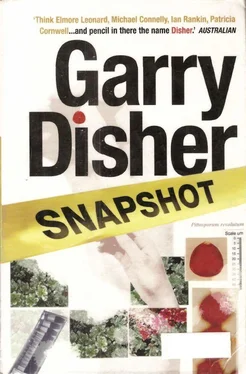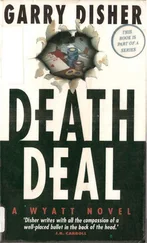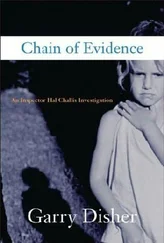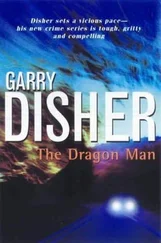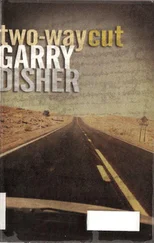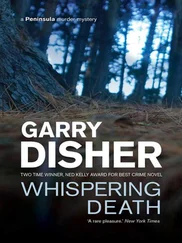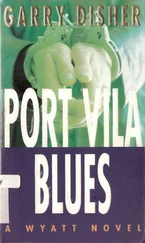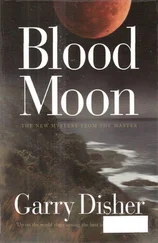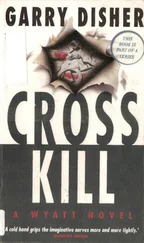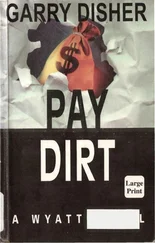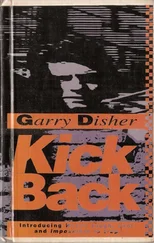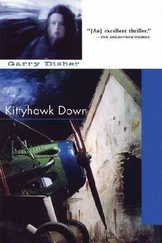Garry Disher - Snapshot
Здесь есть возможность читать онлайн «Garry Disher - Snapshot» весь текст электронной книги совершенно бесплатно (целиком полную версию без сокращений). В некоторых случаях можно слушать аудио, скачать через торрент в формате fb2 и присутствует краткое содержание. Жанр: Полицейский детектив, на английском языке. Описание произведения, (предисловие) а так же отзывы посетителей доступны на портале библиотеки ЛибКат.
- Название:Snapshot
- Автор:
- Жанр:
- Год:неизвестен
- ISBN:нет данных
- Рейтинг книги:5 / 5. Голосов: 1
-
Избранное:Добавить в избранное
- Отзывы:
-
Ваша оценка:
- 100
- 1
- 2
- 3
- 4
- 5
Snapshot: краткое содержание, описание и аннотация
Предлагаем к чтению аннотацию, описание, краткое содержание или предисловие (зависит от того, что написал сам автор книги «Snapshot»). Если вы не нашли необходимую информацию о книге — напишите в комментариях, мы постараемся отыскать её.
Snapshot — читать онлайн бесплатно полную книгу (весь текст) целиком
Ниже представлен текст книги, разбитый по страницам. Система сохранения места последней прочитанной страницы, позволяет с удобством читать онлайн бесплатно книгу «Snapshot», без необходимости каждый раз заново искать на чём Вы остановились. Поставьте закладку, и сможете в любой момент перейти на страницу, на которой закончили чтение.
Интервал:
Закладка:
Challis smiled without much humour. ‘We’ll see,’ he said, and returned to his car, hoping it would start and not let him down with Lowry watching from his shop window.
The police station was on two levels; offices, cells, canteen and interview rooms on the ground floor, and conference rooms, the Crime Investigation Unit and a small gym on the first floor. Challis entered by the back door and headed for his pigeonhole in the corridor behind the front desk. He reached in, took out a sheaf of memos and leafed through them.
Most he shoved into the overflowing bin nearby, but paused in futile wrath over one from Superintendent McQuarrie, addressed to all senior officers: The Assistant Commissioner will be asking some tough questions this year, and you will be expected to deliver balanced budgets. The budget situation is taking over as the main management challenge for the region, and so every order, every item of expenditure, will be reviewed with a critical eye.
Challis had lived through budget constraints before. The usual result was that paper expenditure skyrocketed, to deliver the ever-increasing flood of memos, while the money for torch batteries, interpreters, pens, cleaning materials or calls on mobile phones dried up. More seriously, any squad could be charged for using the services of another squad, access to telephone records of victims and suspects had been reduced, and there was only minimal funding for phone taps. Crime fighting by committee, that was Challis’s view.
He turned and made for the stairs that led to the first floor. ‘Hal,’ said a voice before he reached them.
He swung around. Senior Sergeant Kellock-a bull of a man, befitting his surname, and the uniformed officer in charge of the station-was beckoning him. Challis nodded a greeting and entered Kellock’s office. ‘This came for you,’ Kellock said.
It was a parcel the size of a wine carton wrapped in heavy brown paper. Complicated feelings ran through Challis when he saw the senders’ names: his dead wife’s parents. He was fond of them, and they of him, but he’d been trying to draw away from them. ‘Thanks,’ he muttered.
‘Mate, we’re not a postal service,’ said Kellock.
Challis knew that the parcel would have been delivered to the front desk. There was no reason, other than nosiness, for Kellock to take charge of it. Profoundly irritated, Challis carried the box upstairs to the first floor.
The Crime Investigation Unit was a vast room of desks, filing cabinets, phones, wall maps and computers. Ellen Destry, the CIU sergeant, was having a half-day off work; Scobie Sutton, one of the DCs, was spending the morning in court. A third DC was taking a week-long intensive course in the city, and the fourth was on holiday. It was going to be quiet in CIU today.
Challis’s own office was a partitioned cubicle in one corner, offering a dismal view of the parking lot behind the building. Here he dumped the box on the floor, switched on his office computer and checked his e-mail. There was only one message, from Superintendent McQuarrie, who wanted him to write a paper on regional policing. Challis printed it out and tried to make sense of the guidelines, a low-level fury burning in his head. Was there a clear distinction between a ‘mission statement’, an ‘aim’ and an ‘objective’? Words, meaningless words, that’s what policing had become.
Fed up, he brewed coffee and reached behind him to the dusty radio on his shelf of law books, police regulations and tattered manilla folders. With the 9 a.m. news murmuring in the background, Challis fired up his laptop, got out his notes, and brooded over his report for the coroner on the Navy shooting.
But really, he was putting off the inevitable. Retrieving the parcel from the floor, he tore open the paper and found a sealed cardboard box with a note taped to the lid.
Dearest Hal,
These things of Angles arrived here a few days ago. Apparently they’d been in storage at the jail and overlooked. We thought you should have them to do with as you wish. Take care, dear Hal. We often think of you.
Love,
Bob and Marg
Challis opened the lid and looked at the sad remnants of his wife’s life: paperback novels, a brush and comb, makeup, a pocket-size album of photographs, a wristwatch, the clothes she’d been wearing when arrested. He swallowed and wanted to cry. And then, as the habits and imperatives of his days asserted themselves, he dumped the box and all of its contents in the bin.
Too soon to know if it was a gesture that meant anything.
He returned to his report. The phone rang. It was Superintendent McQuarrie, but a broken McQuarrie, not the dapper golfer and Chamber of Commerce toady.
4
According to the DC who greeted Challis at the murder scene, the 000 switchboard had given the job to Rosebud police. Suspecting a prank, a kid playing around with her mother’s mobile phone, they had eventually sent two uniforms in a divisional van. The uniforms had taken one look at the scene, secured it and called in Rosebud detectives. Then the child, remarkably calm but smeared in her mother’s blood, had revealed that her grandfather was a policeman, an important policeman, Superintendent McQuarrie.
‘I mean,’ the Rosebud DC said, ‘we had to contact him.’
Challis nodded. He gave his name to the uniformed constable who was keeping the attendance log at the head of the driveway, and paused for a moment to take in the wider scene. Sealed road, with various police vehicles, including his own, parked on the grassy verges. There was also a hearse from the firm of undertakers on contract to the government to deliver suspicious-death cases to the lab. Gum trees, suffering from dieback, pittosporums, pine trees and bracken. A couple of distant letterboxes. And, closer to, a steep gravelled driveway leading down to a small weatherboard house, where a silver Volvo station wagon was parked with all of its doors open.
Various men and women were there, too, dressed in white or blue disposable body suits and overshoes and standing beside and under an inflatable forensic tent, which would protect the body and the immediate surroundings from wind or rain. A photographer was taking stills and video of the body, and of the body in relation to the car, the garden beds, the house and a small aluminium shed. The pathologist on duty, Freya Berg, knelt beside the body. Challis couldn’t see McQuarrie anywhere.
He started down the driveway, accompanied by the Rosebud detective, a man with an off-centre nose and a crumpled grey suit. ‘Where’s the super?’
‘Took the kid home with him.’
‘Damn,’ Challis said. A part of him knew that the child would need comforting; another part wanted to get her side of the story before she’d told it to too many others. McQuarrie was an experienced police officer, but he was also the kid’s grandfather, and bound to be protective, bound to want to question her, maybe even put notions in her head about what she remembered.
‘Sir?’ the Rosebud detective said.
Challis smiled at the man. He didn’t want him to think he rode roughshod over the sensibilities of grieving children. ‘I’d hoped to catch up with him, that’s all.’
‘He wants you to meet him at his place, late morning.’
Christ, Challis thought, looking at his watch. He needed to talk to McQuarrie’s granddaughter immediately, not later. He greeted some of the crime-scene technicians, then shouted a sharp ‘Oy.’ at a uniformed constable who’d popped a stick of chewing gum into his mouth and tossed the balled foil wrapper under a shrub. The Rosebud man hurried over, saying ‘You prick, what if we’d taken that into evidence? Pick it up.’
When he came back, Challis said, ‘Did the kid say anything?’
Читать дальшеИнтервал:
Закладка:
Похожие книги на «Snapshot»
Представляем Вашему вниманию похожие книги на «Snapshot» списком для выбора. Мы отобрали схожую по названию и смыслу литературу в надежде предоставить читателям больше вариантов отыскать новые, интересные, ещё непрочитанные произведения.
Обсуждение, отзывы о книге «Snapshot» и просто собственные мнения читателей. Оставьте ваши комментарии, напишите, что Вы думаете о произведении, его смысле или главных героях. Укажите что конкретно понравилось, а что нет, и почему Вы так считаете.
